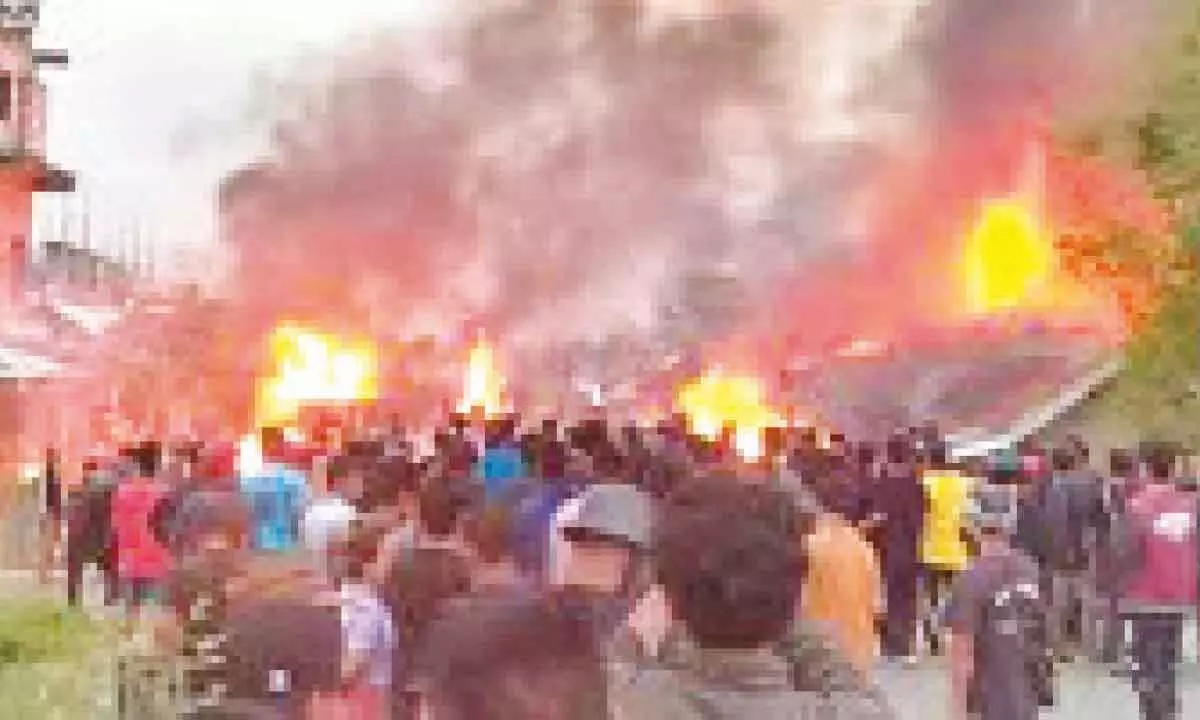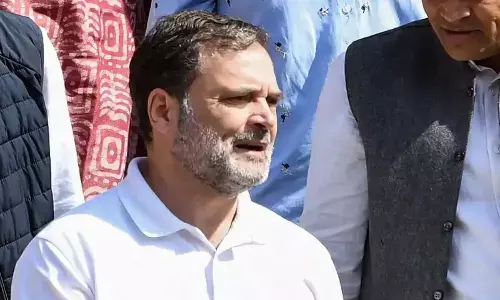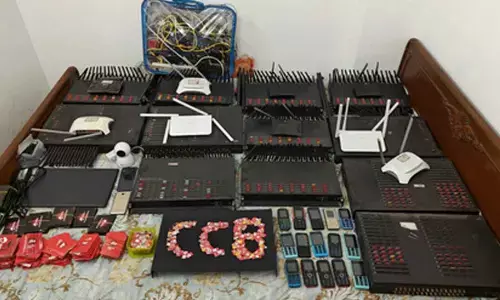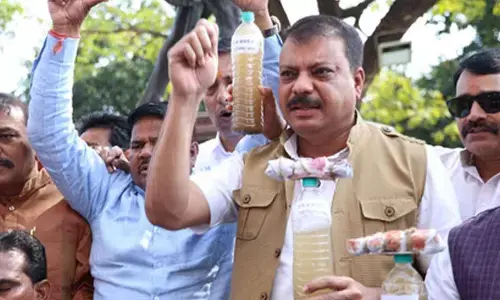Learn to comprehend N-E paradox

One message is people’s confusion. Can I be a ‘nationalist’ – that is committed to India – and yet be a good native Naga or a Mizo? Or do I have to give up being a good Kuki, Sema or Angami and then become a good Naga or a good ‘citizen of Manipur’? The policy makers and the Indian ‘mainstream’ intellectuals have to come out of the old legacy. They have to give a convincing message that no man needs to fear that by becoming a nationalist, he will make himself an anti-Mizo or anti-Naga
Union Home Minister Amit Shah has held wide range of discussions with Manipur Chief Minister N Biren Singh, top army brass, the police, and other stakeholders during his ongoing visit to the ethnic violence-hit northeastern state.
Matters pertaining to those who mattered in the appointment of former IPS officer Kudeep Singh as the security advisor to the state have also come in for closer scrutiny.
Over 70 people have been killed while scores of others have been injured in the violent clashes that broke out in the state since May 3. Thousands have fled Manipur with over 7,000 people now taking shelter in Mizoram. Kukis share ethnic bonding with the Mizos and hence the demand for Greater Mizoram has also been rekindled.
In many places, common people have accused Manipur Police with failures, and also that they have been partial towards the Meiteis. Maybe a former army man would have done the job better, more so because a man in olive green can command more respect from the foot soldiers. In Manipur itself, ex-military officers are available and their services could be enlisted.
It is also high time that the people concerned appreciate that the officers and soldiers of Assam Rifles played key roles during the initial phase when the trouble started.
One can say that the state of Manipur as a whole, and the three segments of the society – the Meiteis, the Kukis and Nagas – cannot be seen flirting dangerously with civil unrest. The northeastern region has seen enough of such clashes and enough of so-called ethnic ‘cleansing’.
Biharis, Bengali Hindus and Gorkhalis have been at the receiving end in Shillong, and people have left for good. Forget tribals-non tribals, episodes like the Reang-Mizo differences and Naga-Kuki issues of the 1990s were really unfortunate. It is time sanity prevails and the ‘sincerity’ displayed by all becomes important achievements; and more so for the government(s) of the day, both in Imphal and in New Delhi.
One is aware of the strong elements of ‘us’ and ‘them’ syndromes in the region. Some years back while working on these inherent issues between two and more communities in another northeastern state (not Manipur), I was told by an expert that the ‘logic of us and the ideology of others’ motivates the root cause of identity politics in the northeast.
And here lies the real challenge.
Today, the Nagas and the Meiteis stand together despite tribal-non tribal differences. The Nagas have their own issues with Kukis, and in the past they “could not trust” each other. In the mid-nineties, the Naga-Kuki clashes used to be a nightmare both in Nagaland and in Manipur. In 2001, when the Naga ceasefire was extended to parts of Naga-inhabited areas of Manipur, the Imphal valley burnt for days.
In other words, when it comes to ‘integrity’ of Naga contiguous areas, there is mutual distrust between the Nagas and the Meiteis. There were some inherent conflicts also. While the NSCN-IM led by Thuingaleng Muivah always stood for Nagalim or Greater Nagalan, former Chief Minister of Manipur late Rishang Keishing (also a Tangkhul Naga) was all along a ‘nationalist’ pro-India, who was part of the resolution of Manipur Assembly that ‘not an inch’ of Manipur state could be compromised.
Therefore, under the given situation, Nagas ought to be given credit for keeping things cool when they could have gotten emotional and excited. “In this season of rumour mongering and intense provocation, there are people among Nagas in Manipur and rights organisations who have understood the gravity of the situation and displayed maturity,” said a source. This is, therefore, certainly a sign of maturity displayed during a crisis situation.
Observers also believe that though ground situations are different, even Kukis and Meiteis will have to display ‘maturity’ and a kind of ‘calmness’.
There is yet another issue of governance or the lack of it. A deep divide in Manipur police on ethnic lines became very evident in the ongoing conflict. Of course, sources maintain that this has made “the task of the Army, Assam Rifles and other CAPF units even more difficult”.
The ongoing violence and communal tension in Manipur are also causes of setback to the overall development journey of Manipur. And this ‘distraction’ from the developmental journey is also a setback for Kukis, Nagas and other tribals in the state. One cannot draw a consolation that let Meiteis alone suffer.
Emerging as an ‘island of peace’ for some time, Manipur under the double-engine government has experienced a lot of positive developments, including pumping in of investments.
In August 2022, Manipur had hosted the prestigious Durand Cup football tournament, Asia’s oldest soccer tourney. Nandini Gupta from Rajasthan was crowned the Femina Miss India 2023 title at the starry grand finale held in Manipur. In other words, the good works and achievements of the Biren Singh government too have been jeopardised.
Efforts have been made by certain quarters that Kukis and Nagas can do business together as both are tribals and are also Christians. And as Meiteis are Hindu majority, there were narratives in circulation vis-a-vis the religion angle the Hindu-Christian divide. But here too, the Nagas have maintained a safe distance. As tribals, the Nagas of Manipur could sympathise with Kukis but they will have their own independent road map vis-a-vis their relations with Imphal on the twin fronts of administration and also people to people relationships.
In all these chaotic scenes and hard work involved to prevent things from deteriorating further, the governance and politico-administrative decisions also come into play. There is a merit in believing that it may not be wise to force Biren Singh to resign, as he could emerge as a ‘martyr’ to the cause of Meiteis.
An old management theory is to keep the ‘same man/woman at the top’ who is responsible for creating the mess, and let him or her resolve the problem.
It is one of the paradoxes of our times and the northeast region which the policy makers ought to comprehend effectively. As of April 2023, as many as 8,000 insurgents surrendered in the northeast since 2014 and joined ‘mainstream society,’ says the Government of India, yet none can deny the violence and multi-pronged troubles the state of Manipur has witnessed.
One message is people’s confusion. Can I be a ‘nationalist’ – that is committed to India – and yet be a good native Naga or a Mizo? Or do I have to give up being a good Kuki, Sema or Angami and then become a good Naga or a good ‘citizen of Manipur’? The policy makers and the Indian ‘mainstream’ intellectuals have to come out of the old legacy. They have to give a convincing message that no man needs to fear that by becoming a nationalist, he will make himself an anti-Mizo or anti-Naga.
In his masterpiece ‘The Conquest of Happiness’, Bertrand Russel says: “The man divided against himself looks for excitement and distraction... he loves strong passion.” Russel further explains that “passion” takes the man “outside himself”. This applies to human kind at the global stage, but it applies more to the people of the northeast.








